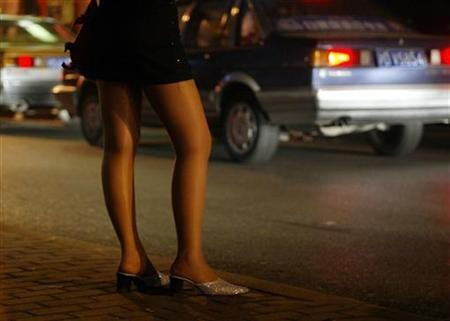Soliciting by sex workers should be decriminalised, MPs recommend
Buying and selling sex work is legal, but activities related to it such as soliciting is considered criminal.
A Commons Home Affairs Select committee has recommended that soliciting by sex workers should be decriminalised. The cross-party MP group has urged the Home Office to change legislation as it currently leaves sex workers vulnerable to abuse and violence.
In England and Wales, buying and selling of sexual services is legal, but various activities related to it such as kerb-crawling, soliciting sex and brothel-keeping are considered a crime.
The report recommends that brothel-keeping laws should be amended so that sex workers are allowed to share premises instead of putting themselves at risk by working alone. It categorically states that there should be zero tolerance for organised criminal exploitation of sex workers.
The interim report also states that people who want to leave prostitution behind and enter other forms of work, face barriers because of previous convictions for sex work. Laws should be changed to delete convictions from their records.
Committee chairperson and Labour MP Keith Vaz said: "Treating soliciting as a criminal offence is having an adverse effect, and it is wrong that sex workers, who are predominantly women, should be penalised and stigmatised in this way.
"The criminalisation of sex workers should therefore end. The committee will evaluate a number of the alternative models as this inquiry continues, including the sex-buyers law as operated in Sweden, the full decriminalised model used in Denmark, and the legalised model used in Germany and the Netherlands."
A spokesperson for the English Collective of Prostitutes that promotes sex workers' rights told The Independent that the recommendations of the MPs was welcomed, but suggested that reforms could further be improved to safeguard sex workers.
The organisation said: "We call on the Home Affairs Select Committee to go further and repeal all the laws that put sex workers in danger. We are drafting legislation to decriminalise prostitution in the UK which will be ready to present in the autumn. We ask to meet with committee members as soon as possible to discuss how this should be framed in line with their recommendations."
In June 2015, Northern Ireland made it illegal to purchase sexual services. Under section 15 of the Human Trafficking and Exploitation Act, it is an offence to obtain such services in exchange for money. Sweden became the first country in 1999 to criminalise buying sex work, but not selling it.
Further, the Home Affairs select committee said that in its final report it would take into consideration the impact of the implementation of the sex buyer law in Northern Ireland and France. It could accordingly establish the potential impact of introducing a similar legislation in England and Wales.
According to Statistics, around 11% of British men aged between 16 and 74 years paid for sex on at least one occasion, which is nearly 2.3 million people. The number of sex workers in UK is estimated to be 72,000 with some 32,000 working in London alone.
Around 456 sex workers were prosecuted for loitering and soliciting in 2014-15. Nearly 152 have been murdered between 1990 and 2015.

© Copyright IBTimes 2025. All rights reserved.



















